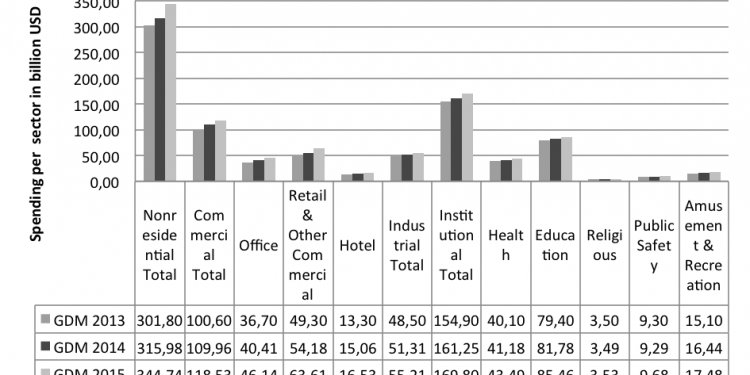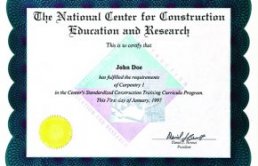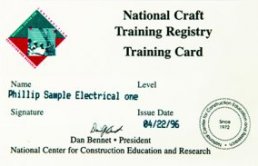
Size of Construction industry
 Two decades ago staff development into the building business seemed drastically different. During the time, numerous technicians and business organizations had established their own proprietary training programs. This generated substantial levels of time, effort and money being devoted to the development of many business art education programs. Consequently, training was being delivered in too many diverse ways, and self-confidence in these programs was lacking. There was clearly no portability of skills for craft experts with no verification of instruction beyond the wall space associated with organization they worked for.
Two decades ago staff development into the building business seemed drastically different. During the time, numerous technicians and business organizations had established their own proprietary training programs. This generated substantial levels of time, effort and money being devoted to the development of many business art education programs. Consequently, training was being delivered in too many diverse ways, and self-confidence in these programs was lacking. There was clearly no portability of skills for craft experts with no verification of instruction beyond the wall space associated with organization they worked for. this example negatively impacted the jobs and mobility of employees, damaged the’s picture and cost enormous sums of cash. To meet up a’s requires during the time, focus shifted to building standardized, industry-led, competency-based education with portable credentials. This is just what generated the formation of the nationwide Center for Construction knowledge and Research, now known as NCCER.
this example negatively impacted the jobs and mobility of employees, damaged the’s picture and cost enormous sums of cash. To meet up a’s requires during the time, focus shifted to building standardized, industry-led, competency-based education with portable credentials. This is just what generated the formation of the nationwide Center for Construction knowledge and Research, now known as NCCER.
 LAYING THE INSPIRATION
LAYING THE INSPIRATION
At 1:55 p.m. may 19, 1995, the future of the U.S. building business changed considerably. At that moment in Aspen, Colorado, over 125 of the nation’s construction industry leaders accepted the organization of NCCER. NCCER was the initial industry-wide business using the resources and commitment to radically change the way the industry would teach its workers and improve its picture. During the two-day meeting, contending businesses forged partnerships to embrace the normal aim of providing standard curricula when it comes to construction industry. At that time, building was an extremely fragmented industry, so that the decision to the office collectively to build up standardized curricula was monumental. Representatives addressed exactly how NCCER would offer sources for organizations to supply high quality education for craft specialists, protection education products, administration training for career advancement and tools to boost the picture regarding the building industry.





















